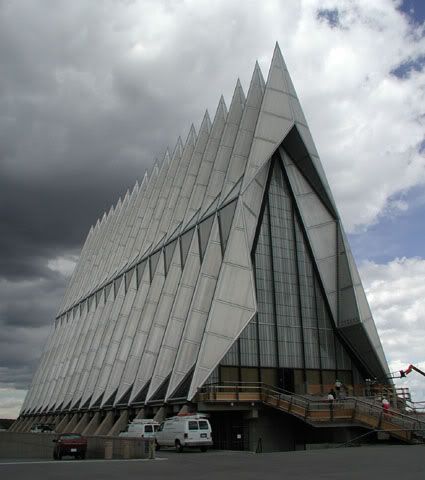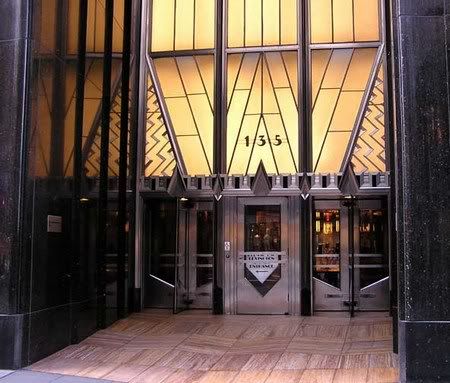Now, who plans to be the next up-and-comer?
Speaking of which, it's big and it's bad--Sarah Nerd is pulling out of SL.
How'ver, what I want to talk about--again--is steampunk music. (Oh, see, you thought I forgot? Noooo. I've just been pondering in the background.)
Maybe I've been going at this entirely the wrong way. I've been concentrating on the music, when maybe--all along--I should have been concentrating on the culture.
Because, when it comes down to it, that is the heart of any music--the culture that surrounds it, infiltrates it, the culture that the music explains and encompasses. So let's start there.
The assumption, of course, remains: society retained a fondness for steam power (and concurrent tinkering) for far, far longer than our society did. So, posit: what else would such a move change in that society?
I think (disregarding any fabulist tales I could spin out) independence would be the biggest change. And not necessarily in terms of dragging leaders down, but in the day-to-day lives of even the poorest sorts--if virtually anyone in the culture, after all, could potentially create using steam, elbow grease, and machined parts, there would be a great upsurge of innovation, of all sorts. Steam-powered vehicles. Steam-powered watercraft. Steam-powered automatons to work in the factories to create more machined parts to sell.
Women, freed from the workplace, would fight for their rights much earlier. They might, in fact, be granted them earlier, but I doubt there would be the jagged split between women-who-work and women-who-marry there is now.
I think a secondary value, constantly reinforced, would be individuality. I truly think mass production of equipment would not have happened, or would have happened much later--the age of the craftsman, painstakingly carving that gem, molding that retort, building house by house instead of houses by the tens, apartments by the dozens, skyscrapers by the hundreds--would have lasted much, much longer.
We'd have far more of this:

and far more of this:

over structures like this:

and structures like this:

Individuality would be respected, independence would be cherished, inventors and innovators would be household names--what else would change? What would we still have discovered, what would we have passed by?
Marie Curie in such an age would be celebrated, and mourned. That might not change. But Albert Einstein--would he be revered, or reviled? Would Hiroshima have happened? Nagasaki? Prior to that, would Korea have happened? What countries would fall prey to cookie-cutter groupthink, over independence that created "calming pies" as often as they created world-walking robots?
To that end, how many cities would be destroyed by one man's experiment gone rogue, over outright war? Would tinkerers and technicians be eventually hated and feared?
This is going to take some thought...
What inspired Star Wars? With a special appearance by Howard the Duck. Oh, dear.
And you just can't trust garden gnomes. Tch.
8 comments:
I'll be honest and say I dislike your choices of buildings. *shrugs*
But.
This!
Hey! Five minute search between dinner-plotting and quilt-mending!
But the link....oooh. And back we are, cyclically, to Vernian Process. Man pops up in the oddest places. :)
One word: Dubai.
Now, do you mean this, or this? The first is insane; the second, while equally odd, is kind of cool in a scary way.
Emily - this is about land and treasury and taxation without representation.
Pls. read my op/ed on this and let me know what you think.
http://turnerbroadcasting.blogspot.com/
I read it, and I responded to it, and it's morphing into a new entry, but...I still have to say, it's not about land and treasury and taxation without representation.
Okay, it's about land. But this is still a business, this is still a technology company. And SL is a game. World of Warcraft, Mabinogi, Lively before it fell, Gatheryn coming, StarGate Worlds coming...they're all games. Like SL.
Unlike SL, most of those are pay-to-play ventures. And even in SL, you can pay for certain services, or live without them. It doesn't change in the least what SL is.
There's no escaping that it's not a separate individual world, wherein we can rise up and throw off the yoke of our oppressors, and demand free and democratic selection...because we can't.
Because in the end, SL is not ours.
Now, do you mean this, or this?
Yes.
And others. Anytime I want a dose of the atypical, I visit pictures of Dubai architecture. Definitely a cure for the conventional blahs. :)
Yeah, you're not kidding.
Hmm, we have more collective money than God, and really aren't interested in social causes...I know, let's build really tall buildings that need turbines installed in them so they don't generate interior tornados!
Phhht.
Post a Comment